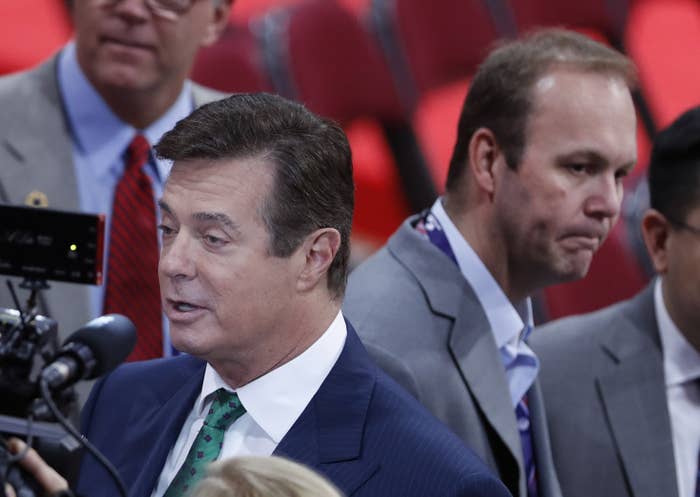
WASHINGTON — In his July 2019 call with Ukrainian president Volodymyr Zelensky, President Donald Trump referenced a conspiracy theory that Ukraine was involved in hacking the Democratic National Committee in 2016 and asked for the “favor” of help investigating it.
Trump’s own campaign was floating the theory that Ukraine, and not Russia, hacked the DNC as early as the summer of 2016, according to new documents obtained by BuzzFeed News from special counsel Robert Mueller’s investigation. Three years later, Trump’s call with Zelensky, where he also asked for help finding damaging information about Democratic presidential candidate Joe Biden and Biden’s family, is at the heart of Democrats’ impeachment inquiry.
In an April 2018 interview with Mueller’s office, Rick Gates — who had served as Trump’s deputy campaign chair in 2016 and was the longtime right-hand man of former campaign chair Paul Manafort — told investigators that sometime after the campaign learned in June 2016 that WikiLeaks had the hacked DNC emails, Manafort had said that the hack was “likely carried by the Ukrainians, not the Russians,” according to FBI notes.
The idea that Ukraine, and not Russia, was involved in stealing emails from the DNC that were released by WikiLeaks in 2016 has long percolated in conservative circles and been pushed by Russian news outlets. It contradicts the US Intelligence Community’s own findings that Russia was involved in hacking the DNC and orchestrating the release of documents through WikiLeaks.
In a written memorandum of the July 2019 call released by the White House, Trump at one point says to Ukrainian President Volodymyr Zelensky, “I would like you to find out what happened with this whole situation with Ukraine, they say CrowdStrike… I guess you have one of your wealthy people… The server, they say Ukraine has it.”
Trump’s mention of “CrowdStrike” was a likely reference to the private security company that the DNC hired to investigate the hack. Trump asked Zelensky for the “favor” of looking into the “whole situation with Ukraine” — in essence asking him to help investigate the origins of Mueller’s investigation into Russian interference in the 2016 election.
Despite claiming he was vindicated by Mueller’s final report, Trump has remained interested in discrediting Mueller’s investigation months after it ended earlier this year. Gates’ description of how the campaign responded to news of the hacked emails in the summer of 2016 illustrates just how far back the campaign was talking about shifting the focus away from Russia.
According to the FBI’s memo of Gates’ April 2018 interview, Gates told Mueller’s office that the idea that Ukraine was involved was a theory pushed by Konstantin Kilimnik, another longtime associate of Manafort; Kilimnik is a dual citizen of Russia and Ukraine, according to the Washington Post. Kilimnik also suggested that the DNC hack could have been carried out by Russian operatives in Ukraine, Gates said.
Manafort and Kilimnik weren’t the only ones pushing the idea that Russia didn’t do it. According to Gates, Michael Flynn, a senior adviser to Trump’s campaign and Trump’s first, short-lived national security adviser, was “adamant” that the Russians weren’t involved. Flynn was skeptical the US Intelligence Community was capable of figuring out who had carried out the attack and suggested he could tap into his own intelligence sources to get the emails, Gates said.
Flynn, Manafort, and Kilimnik all faced criminal charges out of Mueller’s investigation. Flynn pleaded guilty to lying to the FBI about his contacts with the then-Russian ambassador after the 2016 election; he hasn’t been sentenced yet and is attempting to challenge the prosecution. Manafort and Kilimnik weren’t charged with any crimes related to the 2016 campaign. Manafort pleaded guilty to a string of financial crimes and is serving a more-than-seven-year prison sentence. Kilimnik was charged, along with Manafort, with trying to tamper with witnesses in Manafort’s case; he has never appeared in a US court to face the charges.
In a January 2017 report that was made public, the US Intelligence Community (USIC) said that Russian intelligence gained access to DNC servers in July 2015 and kept that access through at least June 2016. The USIC concluded with “high confidence” that Russian intelligence used WikiLeaks and other sources to release hacked documents from the DNC.

